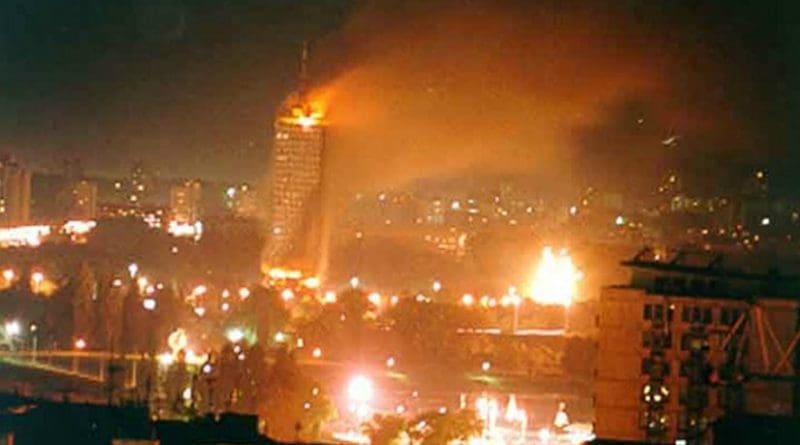Serbian Royal Academy To Sue NATO Over Bombing
By Maja Zivanovic
The Serbian Royal Academy of Scientists and Artists has formed a legal team and says it will file charges against NATO for using depleted uranium during the 1999 bombing of Yugoslavia.
A team of international legal experts will represent Serbians suffering from cancer as a result of the 1999 bombing by bringing cases against NATO states, the head of the Serbian Royal Academy of Scientists and Artists told BIRN.
“We have formed a team made up of experts from Serbia and abroad and we already have around 50 people from [the Serbian city of] Nis with seemingly relevant medical documentation interested,” said Srdjan Nogo, the president of the Academy.
“I’m not a doctor, so I can’t claim they are sick because of the NATO bombing, so first doctors have to check the documentation,” he added.
He said the legal team is made up of 26 lawyers and professors from Serbia, Germany, France, Italy, Russia, China, Britain and Turkey.
NATO launched air strikes in Serbia on March 24, 1999, without the backing of the UN Security Council, after Yugoslav President Slobodan Milosevic refused to sign up to a peace deal to end his forces’ violent crackdown on Kosovo Albanians seeking independence.
By the time Milosevic eventually conceded 78 days later, paving the way for NATO to enter Kosovo, the civilian death toll from the bombing campaign was put at around 500 by Human Rights Watch.
The use of weapons with cancer-causing depleted uranium is also believed to have killed dozens of Italian soldiers during missions to Kosovo, according to European NGOs.
Nogo said that according to the Serbian Health Ministry, one child in the country falls ill with cancer every day, which was the motive for the Academy’s initiative.
He explained that charges will be filed in the national courts of NATO member states and that one of the demands will be for assistance in the medical treatment of cancer patients in Serbia.
Nogo argued that NATO countries responsible for attacks in specific areas could be identified.
“It is known which plane bombed which part of Serbia; for example, it is known that a French plane dropped the bomb in Lake Palic [in the northern city of Subotica],” he explained.
He added that the Academy will ask Serbs abroad to donate to the initiative and that members of the expert team will work pro bono.
“Without wishing to cause hatred or be mean, we only want dignity for Serbian citizens,” he said.
Nogo said he did not expect any financial support for the state.
He said that the initiative had been given the blessing of the Serbian Patriarch, but the head of Serbian Orthodox Church’s office told BIRN that this was incorrect.
The Serbian Royal Academy of Scientists and Artists claims the legacy of the Serbian Royal Academy, which was founded in 1886 and operated until the Yugoslav Communists came to power.
It says its objective is “to improve existing conditions necessary for the material and spiritual rebirth of the nation and the state”.

